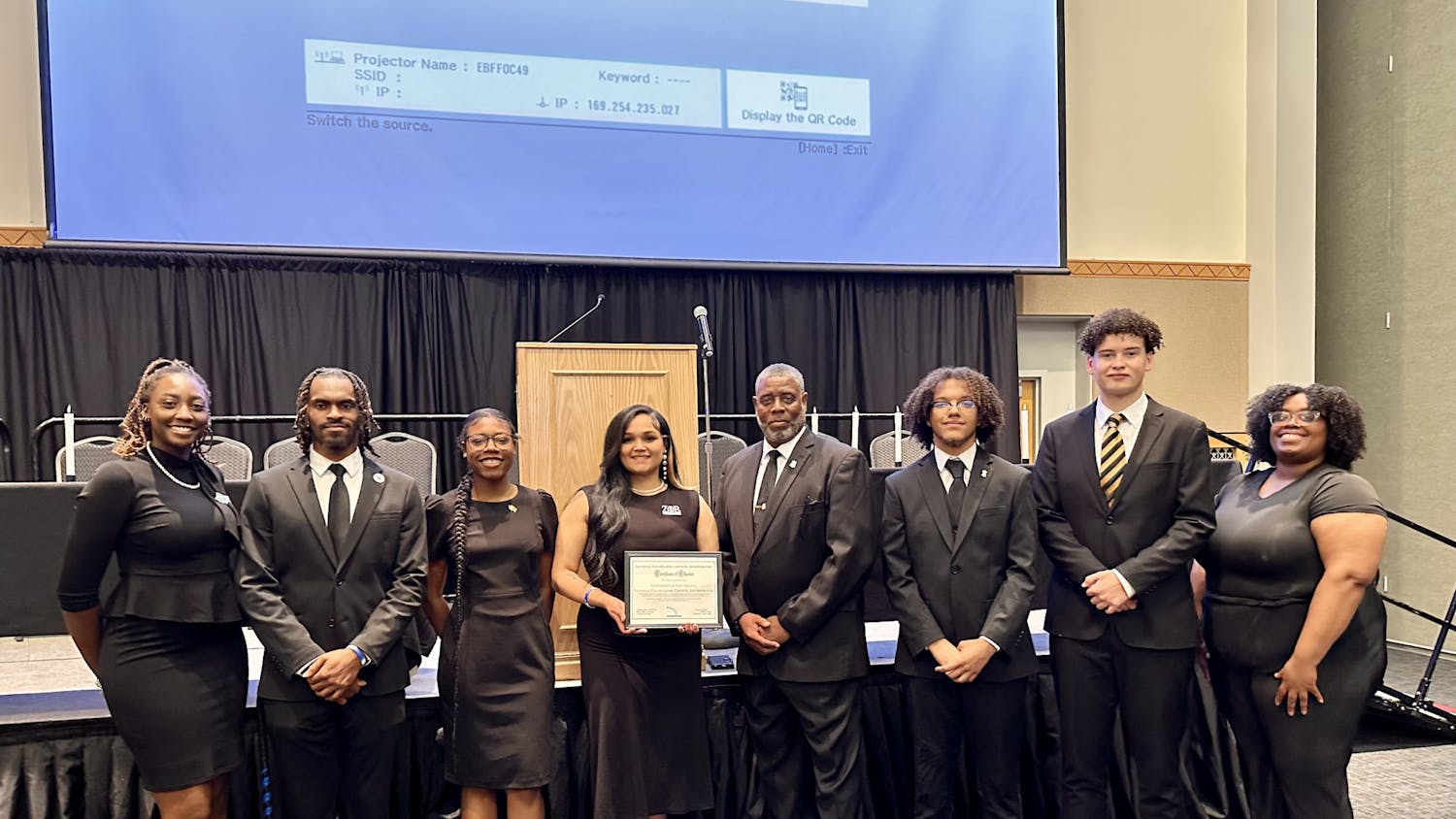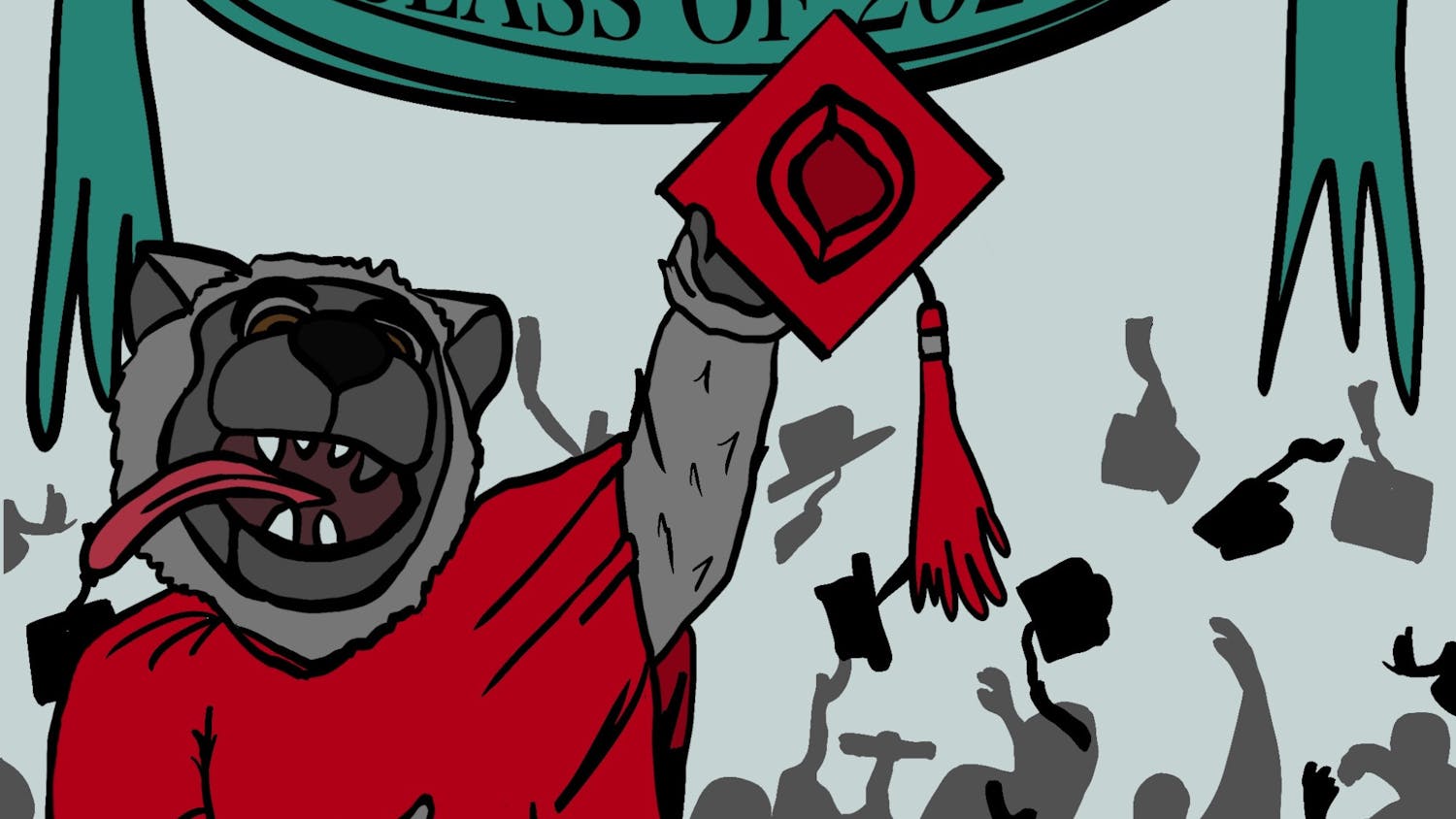Frank Melcori’s “Playboy of the Western World” has been a special kind of hell.
Albuquerque is dirty and bursting with community theater — the kind of theater you do for free, the kind you do for fun.
Those who populate it are usually lawyers-turned-song-and-dance men, students led or ruled by a hobby and retired bodies looking for new labors.
“Just try it,” our director, Frank, would repeat again and again in rehearsal. “Just see how it feels.”
“Playboy” is a 100-year-old Irish play — three acts, split with slang and words from the actual Irish language. What English there is doesn’t really sound like English. It makes learning Shakespeare sonnets look like repeating Dr. Seuss books when you were 3, pretending you could read. Its premiere auspiciously spurred Dublin to riot, which makes for a pretty compelling backstory.
“You have the lead in this show and have the most work,” Frank told me repeatedly in personal e-mails. “You are the leading man in a difficult role.”
This was not only information that did not help me or my potential performance, but something I didn’t want to hear from the man who was supposed to be my leader.
Frank was an odd but harmless bunch of scattered mumbles when I first met him — a grown up Charlie Brown with conniption fits. He muttered weird, inappropriate things like that tipsy, creepy uncle everyone has at family reunions.
There was an early rehearsal before I really knew the man, where Bridget S. Dunne, playing my character’s romantic interest, and I met at Frank’s house. It was uncomfortably intimate, but nothing too strange until Frank interrupted our dialogue to tell us a story about how he was watering naked in his garden one morning before being caught by his neighbor. He fled inside. Then we attempted to transition back into pretending we were star-struck lovers all under Frank’s close, careful gaze.
Our rehearsal schedule constantly changed. His e-mails to the cast resembled attempts at communication, but were filled with contractions, poor grammar, misspellings and liberal ellipses.
There is a job in any play that is more vital and more work-intensive than the largest part and even the director. This is the stage manager. Every prop, every costume, every actor, every light cue, every line, from the smallest detail to matters of the most imperative importance, are all the responsibility of the stage manager.
But we had no stage manager to speak of for all but the last week of rehearsal. This is unheard of for every play ever done at any level of professionalism for a reason — nothing will destroy a show faster than removing the techs.
Frank would insist on specific, nonsensical blocking for the actors — things that everyone but him would see as lacking logic.
“Just try it,” he’d say. “Just see how it feels.”
I would talk to Frank away from everyone else as things got worse and worse, as he began the first week of rehearsal to give me line readings, speaking my lines out loud for me to parrot. I cannot imagine a more damaging cardinal sin in directing, but Frank leveled with me.
Get content from The Daily Lobo delivered to your inbox
“I realize everyone’s schedules are getting screwed up,” he told me. “I realize it’s not easy. It’s not easy for me too, you know. My personal life is surely getting f***ed up because of all this. I probably shouldn’t be telling you this, but since you’re the lead —”
These conversations never went anywhere good.
I saw Frank more than my family, the sheer size and difficulty of my part consuming my life. I thought I was reaching my breaking point, so I reached out to Frank in an e-mail.
“If you don’t let us help you put this play together, it will fall apart,” I wrote. “What the cast needs is direction, structure and purpose, but this clusterf*** is driving us all mad. I know it can’t be easy on you either, so we need something structured and solid as soon as humanly possible so we can all help you do our part.”
Frank didn’t like this much.
He wrote me back, and the first half of the e-mail started like the rest of his weird, rambling e-mails, but in the middle, his tone suddenly shifted.
“Oh, and one more thing.” he wrote. “Don’t ever send me an e-mail like that to me again. It was abusive and disrespectful.”
He finished, “Remember, a lot of people are doing a lot of things to allow you to inhabit this great role. You owe them your respect.”
So he was lashing out — in a bizarre, childish way — but I backed off. I apologized. Better to swallow my pride for the sake of the show than to convince a man he didn’t know how to lead.
But he got worse.
When addressing the whole cast, he would make catty, passive-aggressive snipes at me. He would separate the actors as “young” and “old,” creating a split in the cast none of us wanted.
This split was spelled out in a general e-mail he sent detailing a meeting he’d conducted with the “old” that read like a confession:
“I also thought about how our meeting gradually turned into a gripe fest with each of us and, lamentably, myself included taking potshots at cast members, young and old, and blaming actor’s inadequacies and inconsistencies when it’s myself (is it me?) that is ultimately responsible,” he wrote. “I’m afraid the only asshole in that group, mentioned or otherwise, was myself. A director can’t betray his show or throw his cast members under the bus.”
Just before we opened last Friday, he wrote me one last e-mail.
“I think you’re a pretty immature kid who has an overly inflated idea of his talent and his opinion,” it read. “You really don’t have any respect for the process unless it flows from your point of view.”
“Your Christy is not what I have in mind …” he wrote, “and I’ll have to accept that.”
But the play is good. It is good not because of Frank, but in spite of him. Despite Frank’s attempts to sabotage the play from the inside, it has turned into something powerful, interesting and unique — solely because of the actors’ considerable talent. I’m glad I’ve had the privilege of working beside them.
It’s Frank’s name that is on the front of the program and plastered over every flier. But this is not his play. It’s ours.





